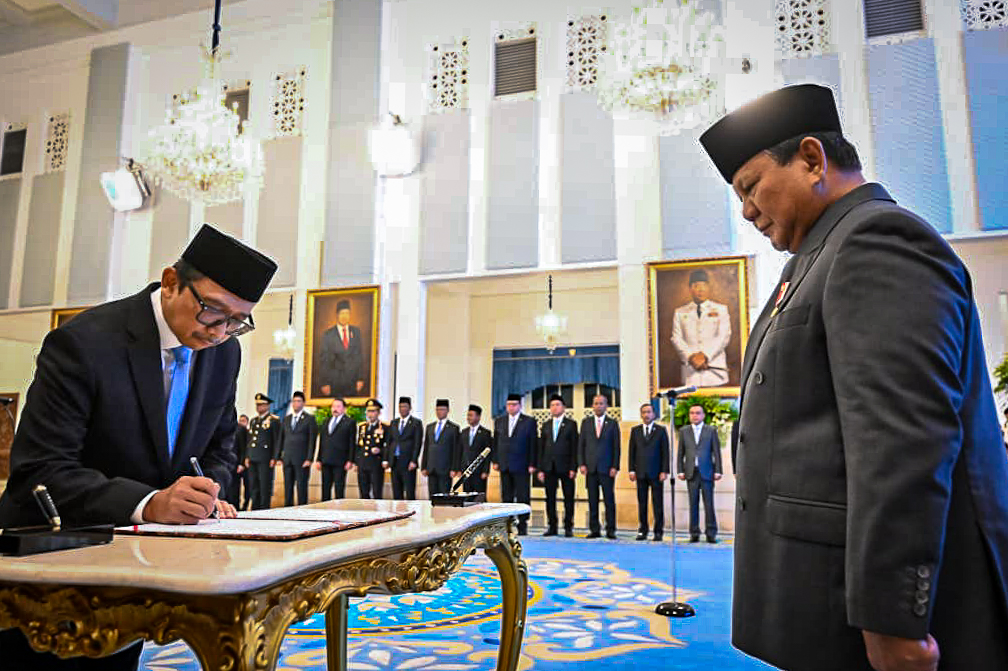BPKP Audit Saves Rp310.36 Trillion in State Finances

Head of the Financial and Development Supervisory Agency (BPKP) Muhammad Yusuf Ateh presents a report at the Opening of the 2024 National Government Internal Supervision Coordination Meeting, at the State Palace, Jakarta, Wednesday, (05/22). (Photo by: PR of Cabinet Secretariat/RAH)
The Financial and Development Supervisory Agency (BPKP) has managed to save finances, reduce state spending, and optimize state revenues, with a total contribution of Rp310.36 trillion, Head of BPKP Muhammad Yusuf Ateh has said at the State Palace.
“From 2020 through the first quarter of 2024, BPKP supervision has succeeded in saving state finances worth Rp78.68 trillion, reducing state spending by Rp192.93 trillion, and optimizing state revenues by Rp38.75 trillion. The total financial contribution amounts to Rp310.36 trillion,” Head of BPKP Muhammad Yusuf Ateh stated before President Joko “Jokowi” Widodo at the opening of the 2024 National Internal Supervision Coordination Meeting.
According to Yusuf, BPKP focuses not only on monitoring financial activities and development effectiveness but also on providing solutions.
“We do not only supervise financial activities, but we also oversee the effectiveness of development across various fields, including poverty reduction, health, education, infrastructure, food security, industrial transformation, mining and plantation governance, strengthening MSMEs, governance of state-owned enterprises (SOEs) and regional-owned enterprises, and the transition to green energy. In our supervisory role, we consistently position ourselves as part of the solution,” he said.
He also revealed that internal supervision has successfully encouraged various positive achievements, including the completion of the 2024 National Strategic Projects (PSN).
“We are ensuring that the various PSN connectivity infrastructures that have been built lead to improved mobility and reduced logistics costs. As a result, this has boosted economic activity,” he explained.
On that occasion, Yusuf highlighted that BPKP still has room for improvement and emphasized the need for acceleration in several government programs. Consequently, BPKP recommends that precision in policy-making, planning, setting performance targets, and monitoring and evaluation is crucial for the success of these programs.
In his report, he also mentioned that the National Coordination Meeting served as a platform to coordinate monitoring measures effectively, ensuring the acceleration of development target completion. (ECH/DNS) (RIF/LW)








